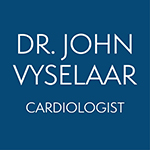Rambling onwards
February 4, 2012Electronic medical record agony
April 16, 2012Hi everyone, hope you are all doing well. I am busy as always.
I wanted to mention, and get your comments, on a trend I have been noticing recently. This is of patients who are feeling well, stopping their medication. Maybe it is because I have been in practice a little longer, now 2 and a half years, and I am getting more follow up patients who have been stable.
A number of them have tried to stop medications on their own. Some just ran out and didn’t realize they needed to keep taking them. Others have tried to play doctor and go without some and taken herbs or exercised instead. Others just quit them cold turkey and “didn’t want to take them for the rest of their life.”
I hope cost was not an issue. I asked most of them and they denied it. I think for the most part this is true although I would freely acknowledge some patients might be nervous about admitting this. Most of the people who have had trouble paying for medications have called me, and I have endeavoured to get them on the least expensive generic product I could find (as long as it would give the patient the same benefit).
I need people to understand that doctors do not prescribe these medications for fun. We generally use them because we think they will actually help you and that whatever risk is much less than the benefit. I know that people are often suspicious of drug companies and doctors, but the new products have to come from somewhere. I do not personally think that pharma has a big role influencing the decision to prescribe something. It may have an impact as to which particular medication we pick within a certain class, but I don’t think it is a big factor in whether we treat you or not.
In cardiology we are fortunate to have a number of medications that reduce rates of heart attack, strokes and other bad things. The reduction in bad outcomes with these medications is substantial! The common misconception is to think because you feel well, all is fine. This is very naive thinking. After your heart attack, for example, if you had a stent or bypass surgery, your arteries are unblocked and you will hopefully not have further chest pain. Many of my patients are in this category. However your body is still, metabolically, busily trying to stick more cholesterol on your heart. Recurrence rates without medications are extremely high, and medications (aspirin, a statin, an ACE-inhibitor, and beta-blockers) are extremely effective at reducing further heart attacks. Similar data exist for heart failure, stroke in atrial fibrillation, and other complications of cardiovascular disease.
Patients are also subject to two cognitive “distortions.” One is denial. I have many patients who thought their heart attack was “just heartburn” or because they exercised and ate lots of vegetables they “just couldn’t” get heart disease. While the chances are less it can certainly still happen. The other is to think that they can do a 5 minute internet search and suddenly equal the doctor’s knowledge. Most people who get into med school are pretty smart. To be a cardiologist I took 4 years medical school and 6 years of residency and fellowship. What do you suppose I was doing during that time?? These distortions tend to reinforce your pre-existing idea that the pills are not required. A big benefit from seeing the doctor is that you see somebody with experience, who is objective at evaluating your symptoms.
Doing things “naturally,” i.e. with diet and lifestyle changes, is always worth doing too. Healthy living is good! At least in my line of work, however, healthy living is not enough. People generally will do much better with the medications AND healthy living.
Now I, like most doctors, am still human! (That was a mini-joke.) I understand a dislike of taking chemicals. I would probably wonder the same thing, if I still needed something if I was feeling so good. I understand you hear in the press all the time things about evil pharma and crooked doctors. I too might be naturally curious about my health and the medications I was taking. So by all means, do your research and ask questions, and expect your doctor to give you a bit of explanation as to why you need to take these things, and what the plan is.
Just don’t stop them out of the blue! They are there for a reason. Recognize that your doctor probably prescribed them to you for a good reason.
What do you think? Have you had these same questions yourself? How have you addressed it? Would you be more willing to take pills if your doctor gave you a better explanation? Do you understand your prescription when you leave the office? How could we do better? How could you do better? Please leave me your comments!
All the best,
Dr. John Vyselaar
- Like
- Digg
- Tumblr
- VKontakte
- Buffer
- Love This
- Odnoklassniki
- Meneame
- Blogger
- Amazon
- Yahoo Mail
- Gmail
- AOL
- Newsvine
- HackerNews
- Evernote
- MySpace
- Mail.ru
- Viadeo
- Line
- Comments
- SMS
- Viber
- Telegram
- Subscribe
- Facebook Messenger
- Kakao
- LiveJournal
- Yammer
- Edgar
- Fintel
- Mix
- Instapaper
- Copy Link
